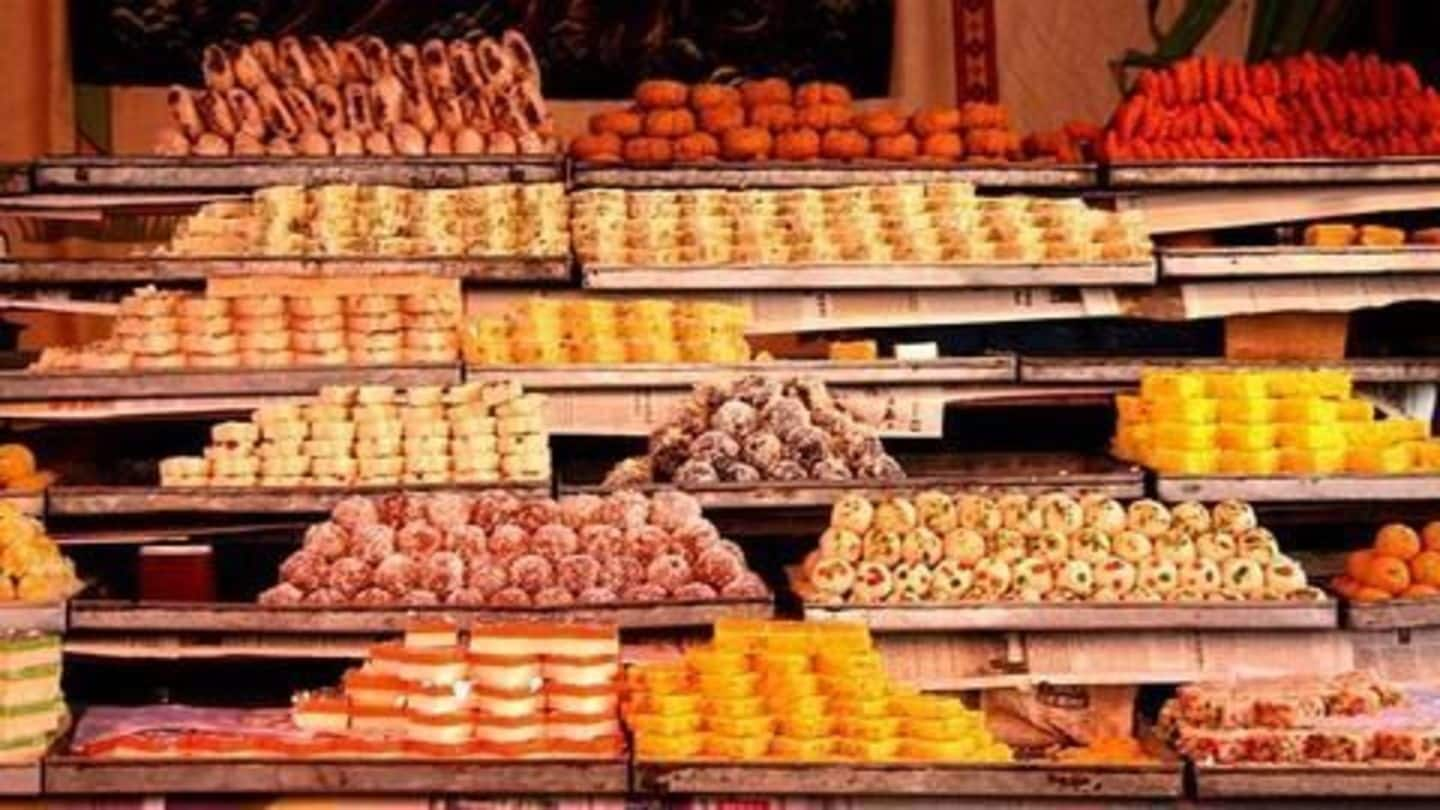
GST hits sweet-makers: Future of faluda, halwa, barfis at risk
What's the story
The GST has had many pros, but several cons too. Now it seems to have touched an unexpected nerve.
The new tax has complicated things for sweet-makers. So much so, that they have halted producing traditional rich mithais and are resorting to simple barfis, plain sandesh and pedas.
What's going on at sweet shops? And what will happen to our beloved halwas and faludas?
Barfi
The barfi fiasco
The GST has divided items into four fixed taxation slabs, but the definitions have been complicated.
Eg, plain barfi, a 'sweet', is taxed at 5%. However, chocolate-flavored barfi, which can technically be categorized under 'chocolates', might be taxed at 28%.
Even if plain barfi is garnished with dry fruits, it could be bundled with 'nuts' and taxed at 12%.
Do you know?
Falooda, chikki and more sweets in danger!
There are more complicated items. Falooda is made with fruit, ice cream, jelly, jam, chocolate and more; then there are other complex combinations like chikki (groundnuts plus jaggery) or 'fruit jelly custard trifle' which leave ample room for subjective interpretation. Even diabetic-friendly versions come under 18%.
Ideas
So how are sweet-makers dealing with it?
An easy way out is reducing variety: "We are making only plain sandesh, plain barfi and plain peda," said Mahesh Rajasekhar of sweet chain KC Das.
Another idea is renaming and repackaging items. Desserts like pastries, pies and mousse that are taxed at 18% can be sold as sweets at 5%.
Either way, most agree that "GST is going to hamper our creativity".
Do you know?
However, subjective boundaries mean sweet-makers can improvise
KT Srinivasa Raja of Chennai Hotels Association explains: "If it's plain roasted cashew, we would have to tax it at 18%. Instead, we could add more ingredients to make it a snack taxed at 12%. Even better, make it a sweet for 5%."